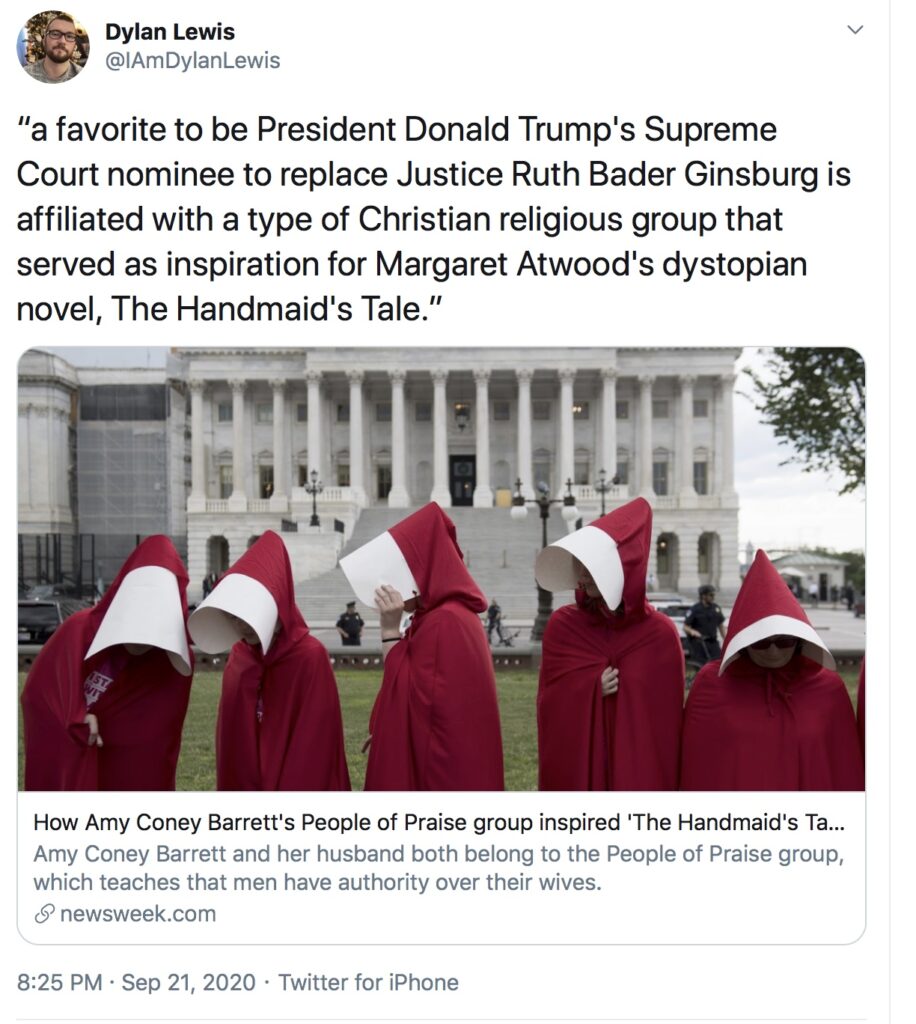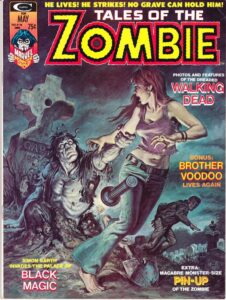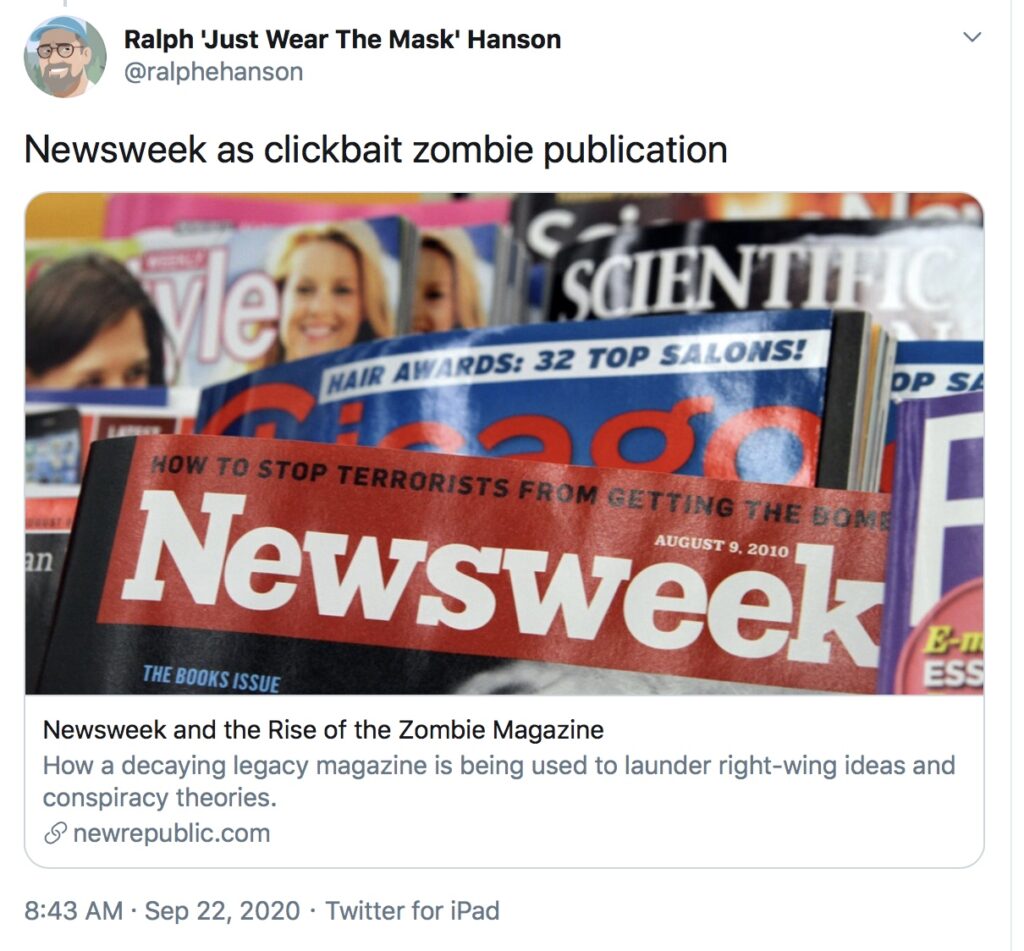Earlier this week I recorded a short video for my media literacy class explaining why this would be the last semester I’m teaching a unit on magazines. The industry, basically, is dying.
It was a difficult decision to remove the magazine chapter from the upcoming eighth edition of Mass Communication: Living in a Media World, but it is clear that much of the old magazine industry is dying. Former magazine giant Time Inc. has been sold by WarnerMedia, with some titles being eliminated and the flagship Time magazine sold off to an individual investor. It was becoming problematic trying to keep the chapter up-to-date with every month bringing news that another publication had gone digital-only or been discontinued completely.
Much of the material about how magazines influence our culture has found its way into other chapters. This has made room for something users have been requesting for several years: a stand-alone chapter on video games and social media. (We’ll talk more about that later this fall…)
One of the saddest parts of this change in the media world is the decline into zombie status of once proud publications. Take Newsweek, for example. That was where Michael Isikoff worked back in the 1990s when he broke the story on the Clinton/Lewinski scandal. It used to be that you could share articles online from Newsweek and be able to count on it being a solid source. But not so much now.
I was reminded of that yesterday morning when I saw this article being shared by multiple people on Twitter:
The only problem is that at the end of the article is a correction that essentially retracts the core of the article. Yes, a potential nominee for the late Justice Ruth Bader Ginsburg’s seat on the U.S. Supreme Court has been associated with a group that some people would view as having retrograde views on men, women and religion. But the group the nominee actually belongs to was never mentioned by author Margaret Atwood as an inspiration for her dystopian novel The Handmaid’s Tale.
Newsweek has become part of a growing group of declining news outlets known as zombie magazines.
These are publications that made the move from paper to online only, and then from being real news outlets to little more than sources of clickbait. While Newsweek in its zombie form is best known for right-wing conspiracy materials, it’s quite willing to lean to the left if there is a way to make the story click worthy. That’s why this story about the Supreme Court nominee was not an example of liberal bias. Instead, it was an example of a bias towards conflict and sensationalism in order to draw clicks.
Sadly, this is not a new story for Newsweek. Columbia Journalism Review ran an article a year ago on the magazine’s decline. And the zombie label was applied to it by New York magazine back in 2013 when Newsweek went all digital.
Zombie publication epithet applied to Newsweek back in 2013 when it suspended print publication.https://t.co/2fsjcPZW4F
— RalphIsNow@rhanson40@threads.net (@ralphehanson) September 22, 2020
It’s been particularly sad for me to watch the motorcycle magazine world die off. At one point I subscribed to four different motorcycle titles. Then one quit publishing. A couple of years later I stopped renewing two of the most mainstream titles as they were clearly on the decline. And finally, without any real announcement, my favorite – Rider magazine that I had subscribed to since the early 1990s — stopped publishing paper copies during the pandemic. There are still a few speciality books out there along with some online content. But the motorcycle magazine world I knew is gone.


